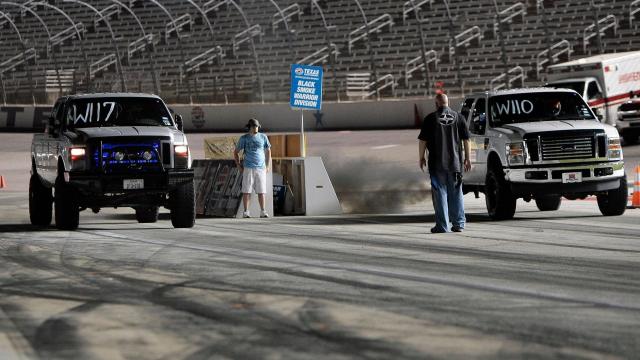Everyone knows that we associate cars with men — especially the heavy ones with loud engines that pump out as much horsepower as they do noise. In fact, it’s often treated as something of a running joke of the kind that accompany truck nutz, rolling coal, and incidents at Cars and Coffee meetups. But academic Cara Daggett is challenging those notions in a way that would require us to confront the sociological realities of cars and fossil fuels and to rewrite our relationship to transportation in light of climate change.
While her article Petro-masculinity: Fossil Fuels and Authoritarian Desire was published back in 2018, its premise is still a crucial one. Namely, Daggett draws ties between the consumption and production of fossil fuels and patriarchal authoritarianism, and that relationship to fossil fuels is part of what has made climate change such a pressing problem.
“Since the new imperialism of the 19th century, fossil fuels have become the metaphorical, material, and sociotechnical basis of Western petrocultures that extend across the planet,” Dagget writes. “In other words, fossil fuels matter to new authoritarian movements in the West because of profits and consumer lifestyles, but also because privileged subjectivities are oil-soaked and coal-dusted. It is no coincidence that white, conservative American men – regardless of class – appear to be among the most vociferous climate deniers, as well as leading fossil fuel proponents in the West.”
Basically, that means the consumption of fossil fuels like gasoline is a deeply engrained part of American culture in ways we don’t necessarily fully understand. The postwar American ideal was founded on that entire concept: men returning from World War II were encouraged to move out of the city and into the suburbs, where they would commute in the family car to their city-based job. That imperitive gave rise to a very specific kind of car culture, one that prioritised the individuality of man and his machine.
And, Daggett argues, it impacted society in other, less obvious ways. If your expression of masculinity is inherently tied to a machine that burns fossil fuels — and society encourages you to find vehicles that are louder, bigger, more powerful, and thirstier — then we’re developing both a practical and an ideological dependence on those kinds of fuel. We need to source fuels from other countries and other regimes in order to continue powering this very specifically American ideal.
It’s a tough mindset to break — and I think Daggett’s article is an important one to consider as we move into a more electric age. After all, EVs are inherently heavier than ICE vehicles at the moment due to the size of the batteries required to power them. A smaller EV would prioritise efficiency, range, and a more environmentally-friendly attitude toward both the consumption of space and the consumption of fuels.
America’s response, though, has been to start building bigger, heavier, less-efficient electric vehicles. We’re not altering our bigger-is-better mindset, the one that has encouraged us to take up tons of space with large vehicles and excess in everything from the food we eat to the land we take up. We’re treating EVs with the same pissing contest mentality that sees some folks boasting over how fuel inefficient their cars are because it denotes a greater sense of consumption than someone else. And, with some forms of electricity still powered by dirty fuel sources like the burning of coal, a more inefficient EV is perpetuating a similar set of problems that has brought us to our current climate crisis.
I do admittedly love the nature of American car culture. I love the individualism. I love much of the excess. I love the preservation of old machines from a different era and the pride in a great vehicle you worked hard to achieve. And I think we can still preserve a lot of those facets of car culture — we just need to reimagine what car culture looks like in a more eco-friendly area. We need to make a big deal about the efficiency of an EV rather than its size. We need to reimagine the iconic American road trip to include more frequent stops. We need to distance ourselves from the idea that fossil fuels are necessary to our way of life. Because until that happens, just swapping to electric power won’t be enough. We’ll still struggle to reap the benefits that a more electric culture could provide.
